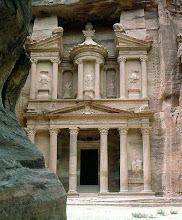Scarcity or abundance? How does the access to information change our perceptions of the world around us and our place in it? Does the more information we know or have access to transform our ideas of historical consciousness both for professionals, amateurs and the public? Why or why not? These are fascinating questions that are shaping the role of historians and the very nature of history itself. Our seemingly endless technological ascent only expediates the process and forces us to confront the question head on lest we be perpetually playing catch up. I for one am fascinated by intellectual paradigm shifts that occur on a large scale and believe that we are indeed living through one as scholar Roy Rosenzweig clearly demonstrated in his article Scarcity or Abundance. The shift is what he describes as the transition from the culture of scarcity to the culture of abundance.1
What is the culture of scarcity and how does it shape our perception of the past and how does it differ from the emerging culture of abundance? The culture of scarcity refers to the limited access of historical documents and sources by scholars and the public alike. This refers both to the limited number of people who were allowed access to these sources as well as the relatively small amount of actual documents that those with access could study. Conversely, the culture of abundance refers to seemingly endless amount of information now being collected by and preserved through computers. A historian looking to study the Clinton administration will need many lifetimes just to sift through his administrations email, let alone to fully interpret his presidency. As technological advance continues, the amount of information that can be preserved is staggering. For future historians, tackling this amount of information will focus on new strategies for research and will create new types of interpretation. But will all historians be affected by this paradigm shift? I have a particular interest in Classical History and Medieval History but how will the culture of abundance affect this area of history? This is one area of history that I believe will not be fundamentally altered, such as modern history, by the culture of abundance. Even with this paradigm shift, studies of antiquity and classicism will remain in the realm of the culture of scarcity simply due to the amount of sources that have been lost and can never be recovered.
Given this development I feel that historians who deal in modern history are the ones who are confounded with this new culture of abundance. Historians who study older times periods, especially medieval and classical will greatly benefit from this technological paradigm shift. There are few remaining literary sources from that time period and each has been studied meticulously for generations by previous classical scholars. Above that, there is a great deal of physical remains left from antiquity but again, we do not get an entire picture and are only left with puzzle pieces. The new technological environment does change how classical and medieval historians can communicate with each other, their access to sources and even new types of interpretation. Yet, there is not the dramatic assault of information that is present for modern historians. Disparate sources that were previously isolated from scholars are now available in digital forms and can be shared across continents. Digital imaging has allowed these historians to recreate the environments and buildings of ancient human civilizations, which further helps them to recreate and interpret the past. I feel as though these historians will always deal in the culture of scarcity, and the shift to this new culture of abundance only enhances their studies. They have harnessed new technology to enhance the limited amount of sources they can work with and to promote more communication between scholars. This new technology is great, but it can’t bring back all the sources lost over time meaning some historians will never get to dabble in the new culture of abundance.
Endnotes
1. Roy Rosenzweig, “Scarcity or Abundance? Preserving the Past in a Digital Era,” American Historical Review 108, no. 3 (June 2003):

There are more than 60 million words in the Classics section of the Perseus Digital Library ... and that is not counting the art / artifact browser. I'd say the work of people like Gregory Crane has already confronted ancient historians with an unprecedented abundance.
ReplyDeleteI meant to write a follow up after going through the Perseus Digital Library, which is awesome! In terms of sheer access, a classical historian now has far more sources that are available to him/her than ever before. In this respect there is certainly an abundance of information to shift through. Where I think I may have gaffed in that respect is the number of primary sources available from the classical period cannot change unless there are new discoveries of lost texts. Unlike a modern historian who has much more data to sift through because of the magnitude of preserved information.
ReplyDeleteCertainly examples like the Perseus library give classical historians new modes and methods to display primary sources and to connect them in ways that were never conceived of before the internet. In that respect, perhaps I should have noticed that classical historians straddle the line between abundance and scarcity. Scarce because primary sources are more limited for classical historians and always will be. But abundant because technology drastically expands the availability of all know texts and sources which would have been impossible, except for the Library of Alexandria perhaps. Abundance also means that new types of presentations will be available to display those sources to scholars and the public. Can a classical historian then be said to sit on top of both fences?
In addition to Perseus, I have now found this link to early Cuneiform Tablets that are being digitized. The Cuneiform Digital Library Initiative can be viewed here:http://cdli.ucla.edu/index_html. Just another example of the new avenues for collaboration between classical scholars brought by the information age.
ReplyDelete